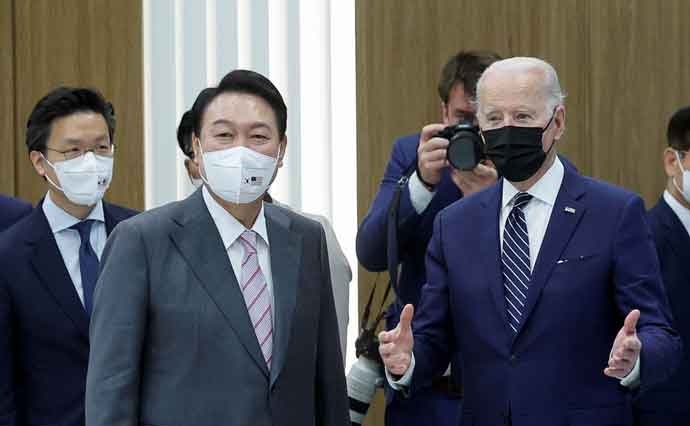Dong Chunling, Deputy Director, Office of the Center for the Study of a Holistic View of National Security, CICIR
Jun 02, 2022
While U.S. President Joe Biden’s Asia trip didn’t include China, Secretary of State Antony Blinken filled in some of the missing pieces in the puzzle of America’s Indo-Pacific diplomacy. His recent speech can be seen as a prelude to America’s long-delayed national security strategy.
Dan Steinbock, Founder, Difference Group
Jun 02, 2022
The Biden administration’s leadership failure is the net effect of Capitol Hill’s revolving door politics. The White House is not in charge. The Big Defense is.

Nie Wenjuan, Deputy Director of Institute of International Relations, China Foreign Affairs University
May 31, 2022
At the gathering in Washington, China was the elephant in the room. While it’s too soon to say which side has the upper hand in Southeast Asia, the summit offered a glimpse of how the competition will unfold.
Shen Dingli, Professor, Institute of International Studies, Fudan University
May 31, 2022
There was nothing new revealed in the U.S. president’s visit, other than launching Indo-Pacific Economic Framework. Roping in Japan and South Korea and declaring that the U.S. would “intervene” in a Taiwan conflict, all amounted to old news.

Shen Yamei, Director, Department for American Studies, China Institute of International Studies
May 26, 2022
Multiple factors are preventing the United States from unveiling a clear position. Uncertainties in domestic politics, the conflict in Ukraine, an alleged China-Russia axis and the Taiwan issue all factor in. The U.S. is at a foreign policy crossroads in a complex environment.

Zhao Minghao, Professor, Institute of International Studies at Fudan University, and China Forum Expert
May 24, 2022
Washington is looking to shore up its Indo-Pacific strategy by further roping in South Korea and Japan. Its strategy is alive and well despite the Russia-Ukraine conflict, and China’s peripheral diplomacy will continue to face thorny challenges.
Li Zheng, Assistant Research Processor, China Institutes of Contemporary International Relations
May 20, 2022
With the shadow of the Russia-Ukraine crisis looming in the background, America’s midterm elections will be a test of voters’ mood. Donald Trump’s sway over the Republican Party will be reinforced or repudiated. But economic factors may be the decisive factor.
Yang Wenjing, Research Professor, Institute of American Studies, CICIR
May 18, 2022
Views differ on what triggered the current conflict. But whatever the pros and cons of NATO expansion, the conclusion must be that China, not Russia, is the greater long-term, structural and potentially lethal challenger to America.

Zhang Tuosheng, Principal Researcher at Grandview Institution, and Academic Committee Member of Center for International Security and Strategy at Tsinghua University
May 16, 2022
The phrase “Ukraine today, Taiwan tomorrow” has been heard frequently in Taiwan since the outbreak of the Russia-Ukraine conflict. But separatists on the island are not sure the United States would come to their rescue if Beijing moved toward reunification.
Zhang Yun, Professor, School of International Relations, Nanjing University
Apr 20, 2022
The domestic and foreign policies of the United States will both return to the pragmatic tradition, partly because of the diverse nature of the country. At the same time, pragmatic diplomacy in a pluralistic world will improve international relations.